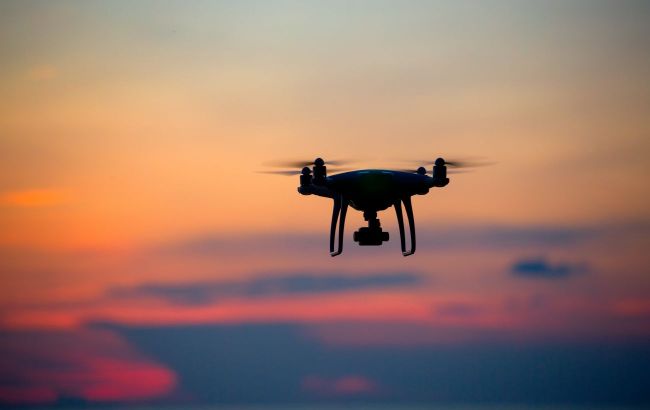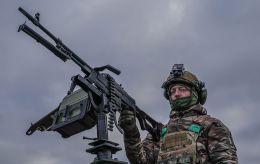Germany faces surge of suspicious drone activity over military and infrastructure sites
 Germany strengthens its defense (Getty Images)
Germany strengthens its defense (Getty Images)
Germany is reporting a growing number of suspicious drone flights over military bases and critical infrastructure. In response, the authorities have begun modernizing the country's drone detection and countermeasure systems, Tagesschau reports.
According to the report, unidentified drones regularly appear over Germany's military facilities and critical infrastructure. Until recently, detecting and countering these aerial objects was nearly impossible. However, according to WDR (Westdeutscher Rundfunk), NDR (Norddeutscher Rundfunk), and Süddeutsche Zeitung, the government has now begun upgrading its defense systems.
The outlets note that not a week goes by without reports of suspicious drone activity being submitted to the Federal Ministry of the Interior. The incidents are geographically widespread — ranging from the North Sea coast to Bavaria.
Sometimes these are single drones spotted over Bundeswehr training grounds, while in other cases, multiple aerial devices are seen over industrial facilities. Notably, some of the drones have unusual dimensions, including wingspans of up to one meter.
Suspicions of espionage
Since the start of Russia's full-scale invasion of Ukraine in 2022, the number of drone sightings has risen sharply. Germany's security agencies are now questioning whether these incidents involve Russian drone-based espionage or simply amateur drone pilots.
In most cases, reports come from eyewitnesses who provide photos or videos. At the same time, technical detection, tracking, and identification of drone operators had been largely unsuccessful — until recent weeks, when the situation began to improve.
Counter-drone system modernization
According to WDR, NDR, and Süddeutsche Zeitung, several government institutions, including the Bundeswehr, have conducted technical upgrades. Sources within security circles report that new equipment has been procured to more effectively detect and track drones. As a result, several drone operators have already been identified.
The Ministry of Defense confirmed that in recent months, a variety of measures have been implemented to protect military sites and improve drone detection and defense capabilities. However, for reasons of military security, tactical and operational details have not been disclosed.
Military expert Frank Sauer from the Bundeswehr University in Munich emphasized that drone flights pose a real threat that should not be underestimated.
"Detection systems aren't magic... But, as is often the case, the challenge lies in how to launch procurement, identify good suppliers, choose the right one, and then acquire the necessary quantity," he noted.
Last year, Bild reported that Russian drones may have been spying on Germany's critical infrastructure.
Meanwhile, last month, EU Commissioner for Defense and Space Andrius Kubilius even proposed the creation of a drone army to counter a potential attack by drones deployed by Russian President Vladimir Putin.
Additionally, Germany and its allies recently held large-scale military exercises on the Rhine. As RBC-Ukraine reported, the exercises focused specifically on defense scenarios involving drone threats.

